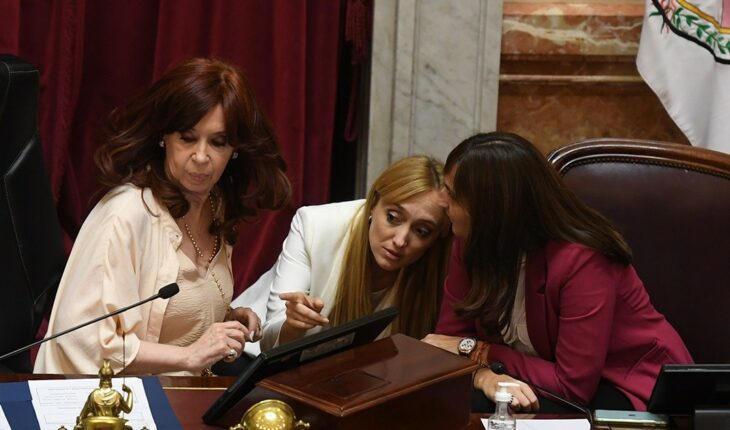The Senate signed into law the agreement with the International Monetary Fund for the refinancing of the $45 billion debt. However, the vote again exposed the differences within the Frente de Todos, since 13 of its senators, linked to Kirchnerism, voted against the project. Once the rule was passed, lawmakers issued a statement explaining their position.” Adjusting the middle and lower income sectors is by definition counterproductive to the very goals of economic growth that any program needs to avoid failing,” they argued, in a lengthy document titled “Grow to Pay: Is It Possible with This Pact?” Throughout the text, they listed the points by which they consider that this agreement will be negative for Argentina.” Despite our willingness to honor debts, we know that adjusting to the middle and lower income sectors is by definition counterproductive to the objectives of economic growth themselves,” they said. They also mentioned the impact that the war in Ukraine will have on the region and, particularly, on Argentina. “In effect, the agency pointed out, it will be even worse in Latin America, since it is a region that is strongly coupled to the international market for food and raw materials. In other words, the Fund itself is admitting that it will be impossible to meet the goals proposed to Argentina.” According to Kircherism, the agreement with the IMF contemplates the following measures
Deficit reduction depends to a large extent on the possibility of reducing subsidies. But the reduction of subsidies means less consumption spending, so the collection will fall deepening the deficit.”
“The reduction of inflation depends on the reduction of monetary financing of the deficit, while the goals of reducing energy subsidies (increasing tariffs) and maintaining the real exchange rate strain prices upwards, generating inflation due to increased costs. The inflation reduction target can never be met.”
“The reduction of monetary financing to the Treasury needs as a condition access to financing via the local market of debt in pesos.”
“The taking of debt in the local market of debt in pesos depends on a sustained policy of increasing interest rates. This increase in interest rates in real terms, in turn, leads to a contraction in real economic activity and, in revenue, which deepens the deficit.”
“The accumulation of reserves depends on a consolidated positive trade surplus, which in turn must be compatible with the goal of maintaining the real exchange rate, which, as we have already mentioned, implies a constant devaluation that is in itself inflationary.”
“With these premises it is impossible to boost economic growth. Without economic growth there is no industry, no energy self-sufficiency, let alone technological change and export diversification, which are the real bases of a sustainable development model with wealth distribution,” they said. On the end of the document, the legislators insisted that “the numbers have to close with the people inside, and unfortunately, with this pact, millions of compatriots will remain outside and many more will be excluded.” Some arguments in defense of what was signed with the IMF are aligned with the idea of a false and repeated possibilism that cradles the dilemma of this is chaos or is this or the abyss. They have repeatedly cornered society and its representatives with this type of operation when laws were passed that had disastrous results,” they said.





